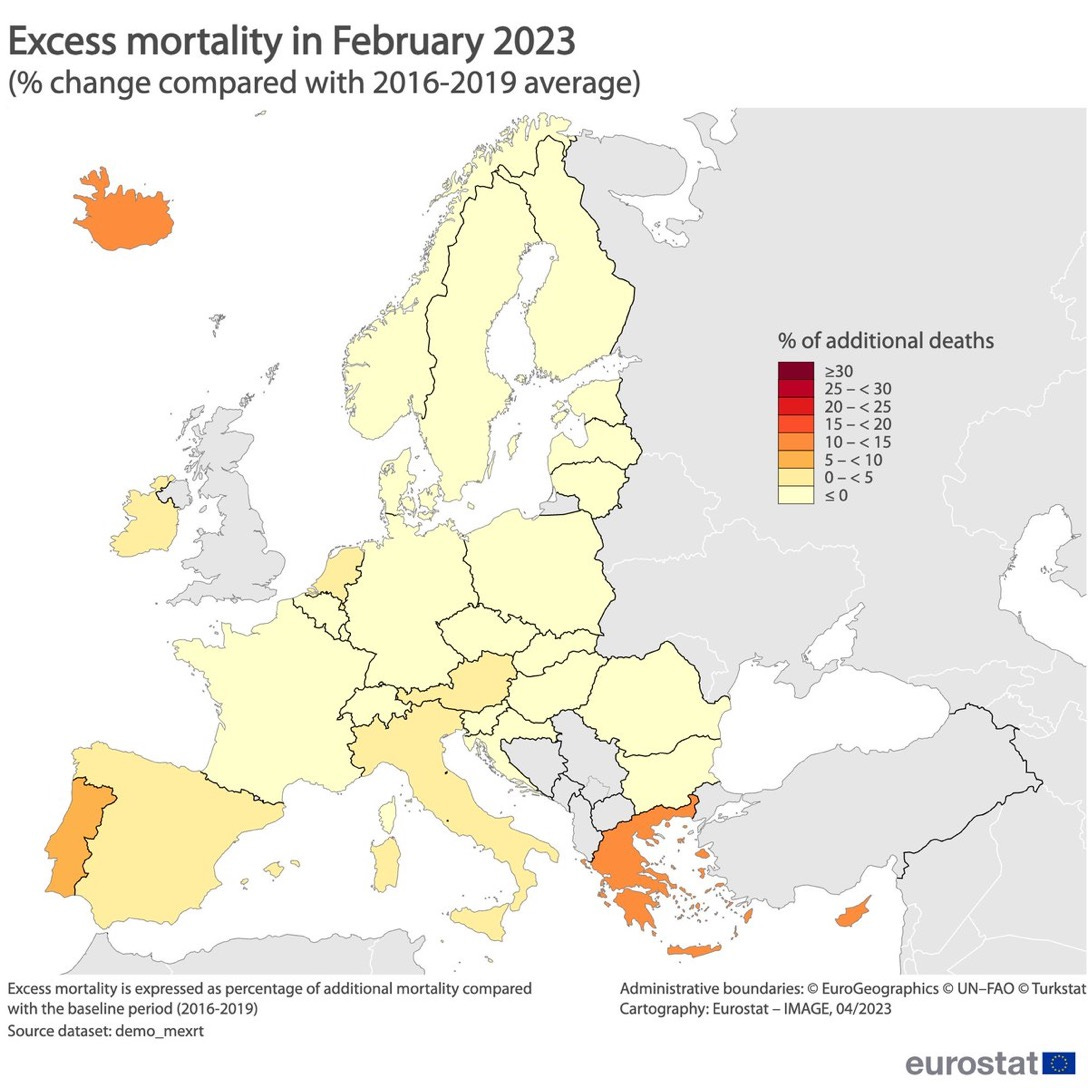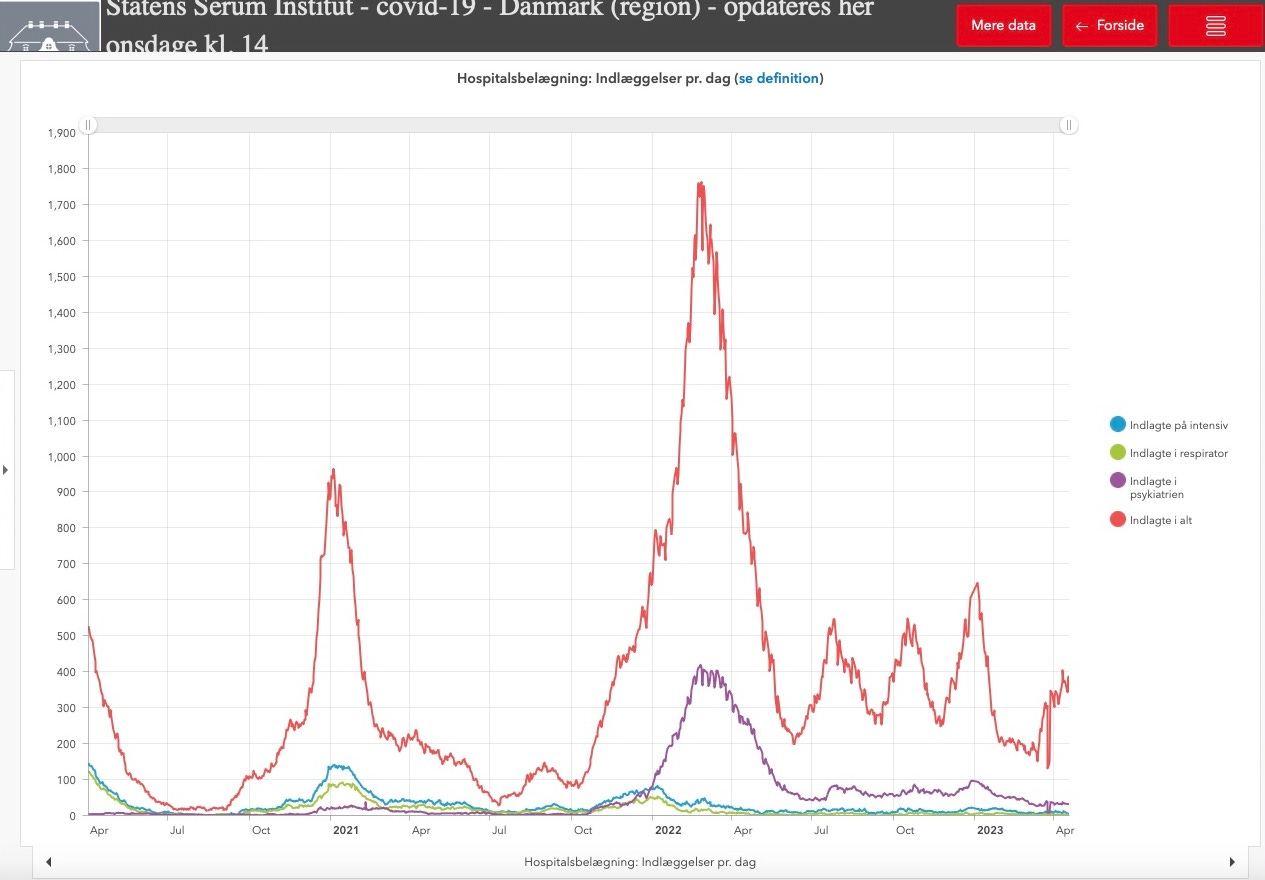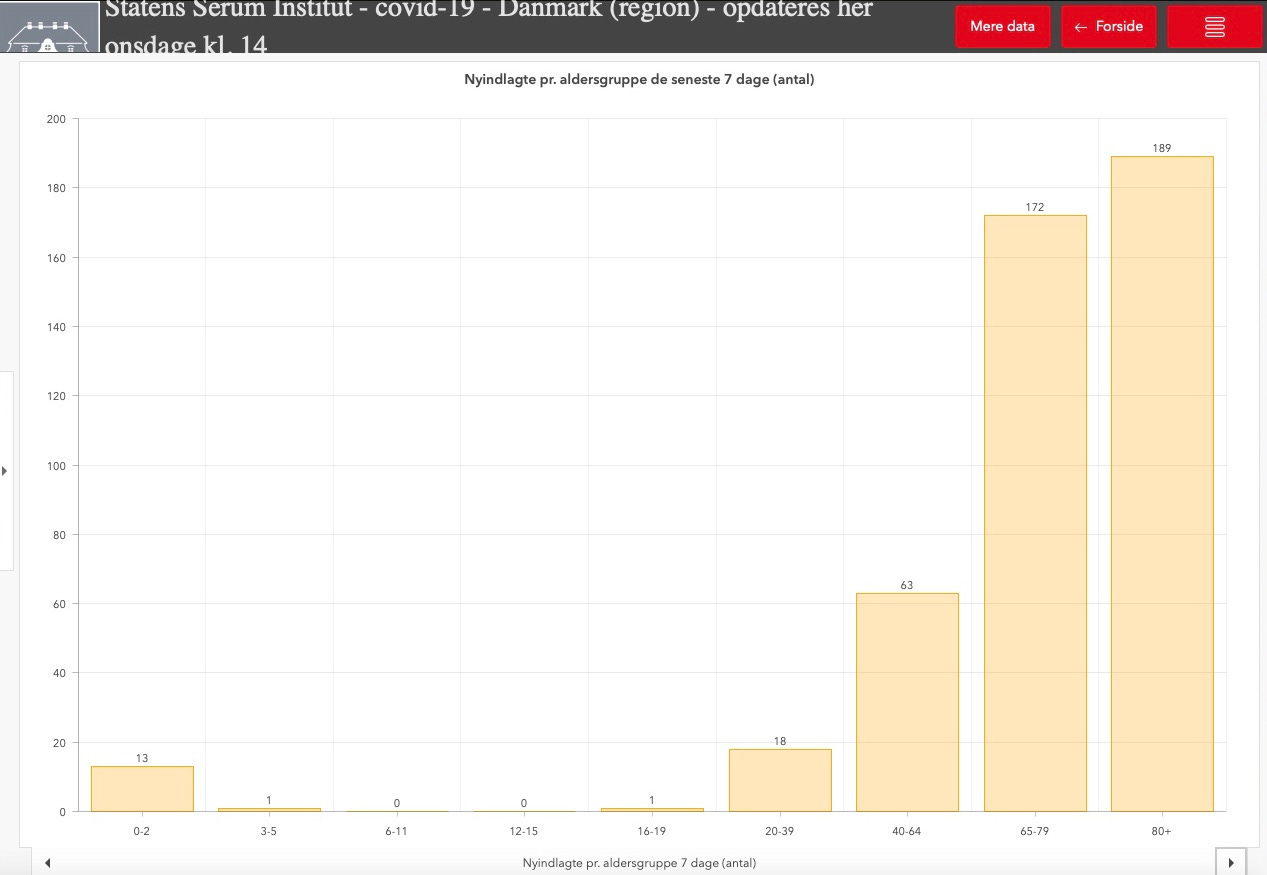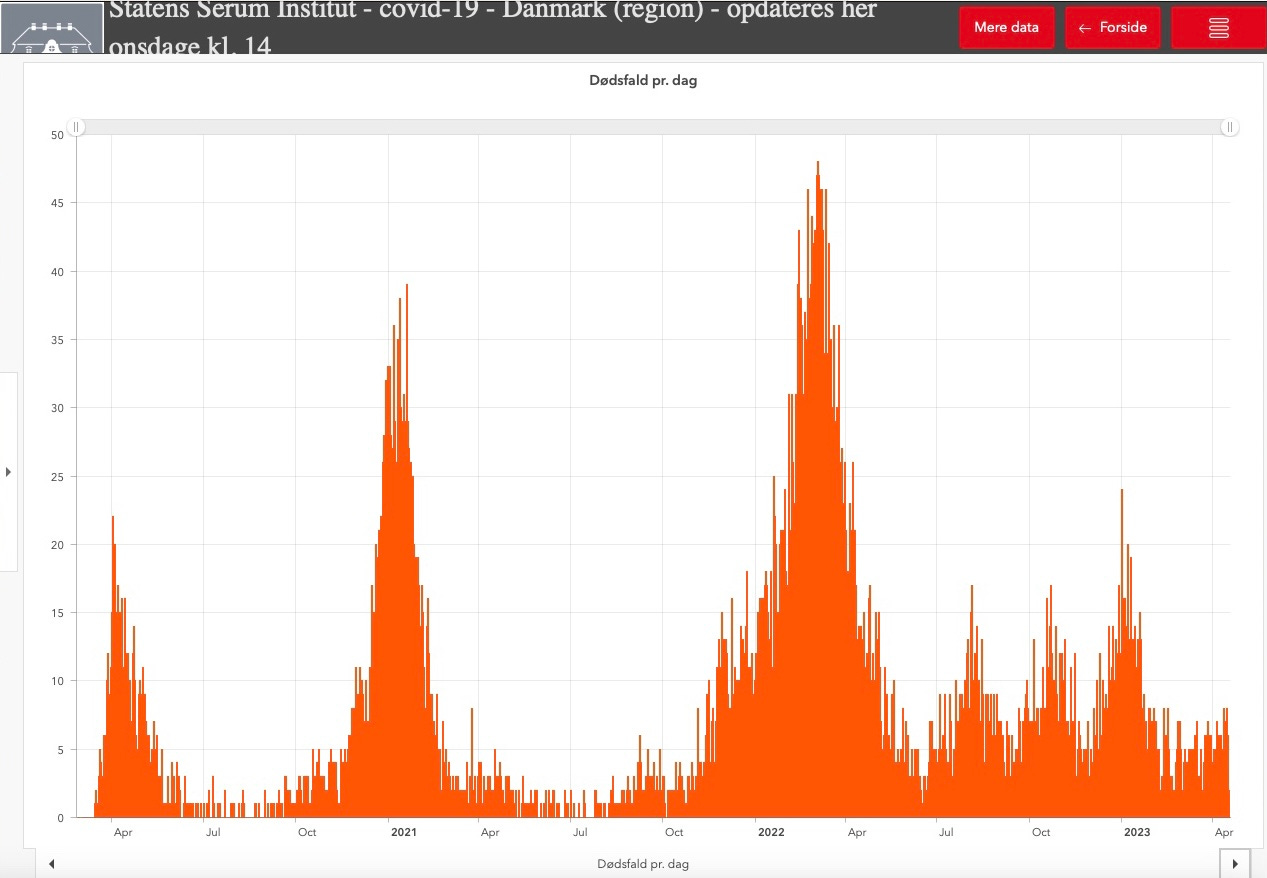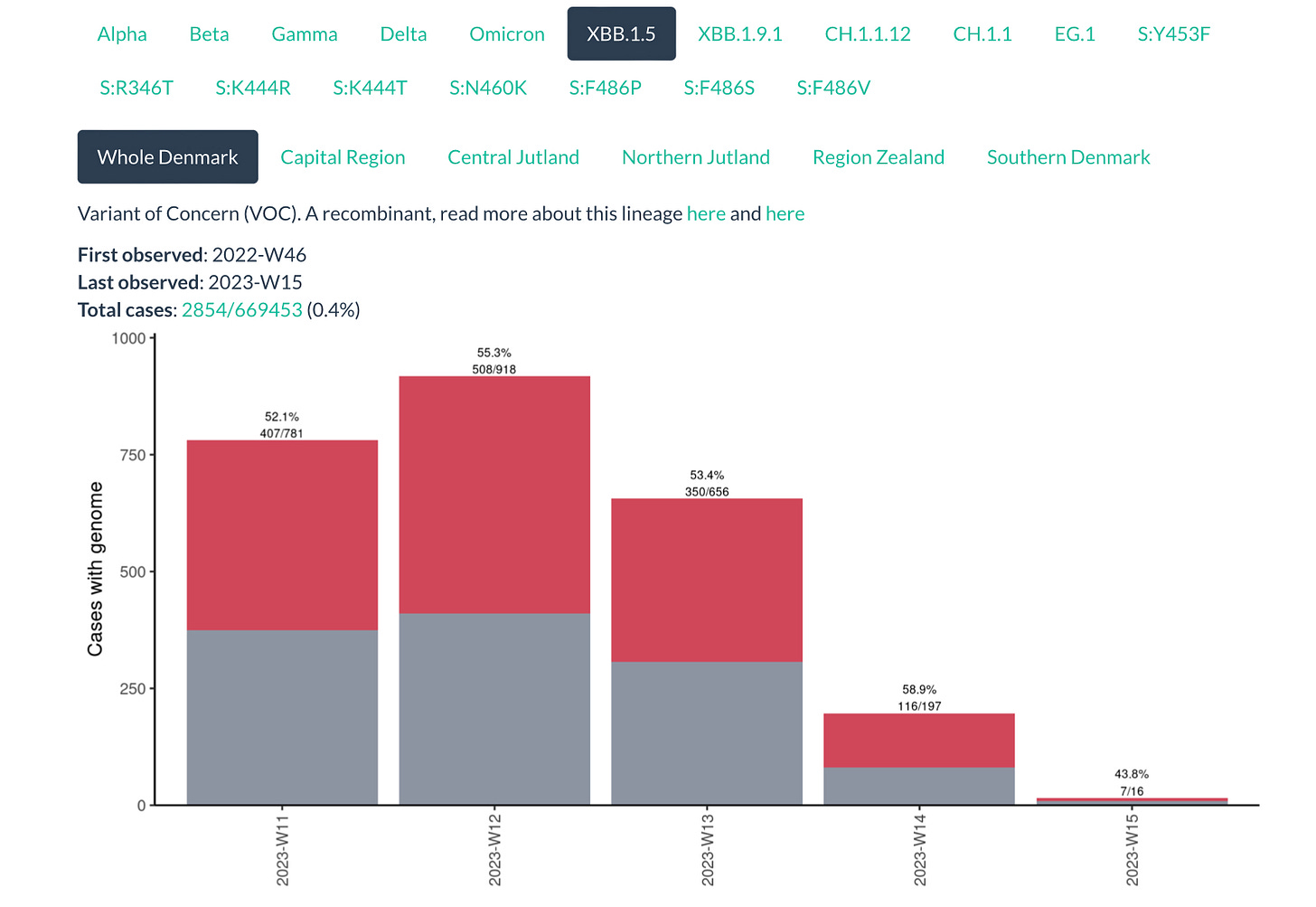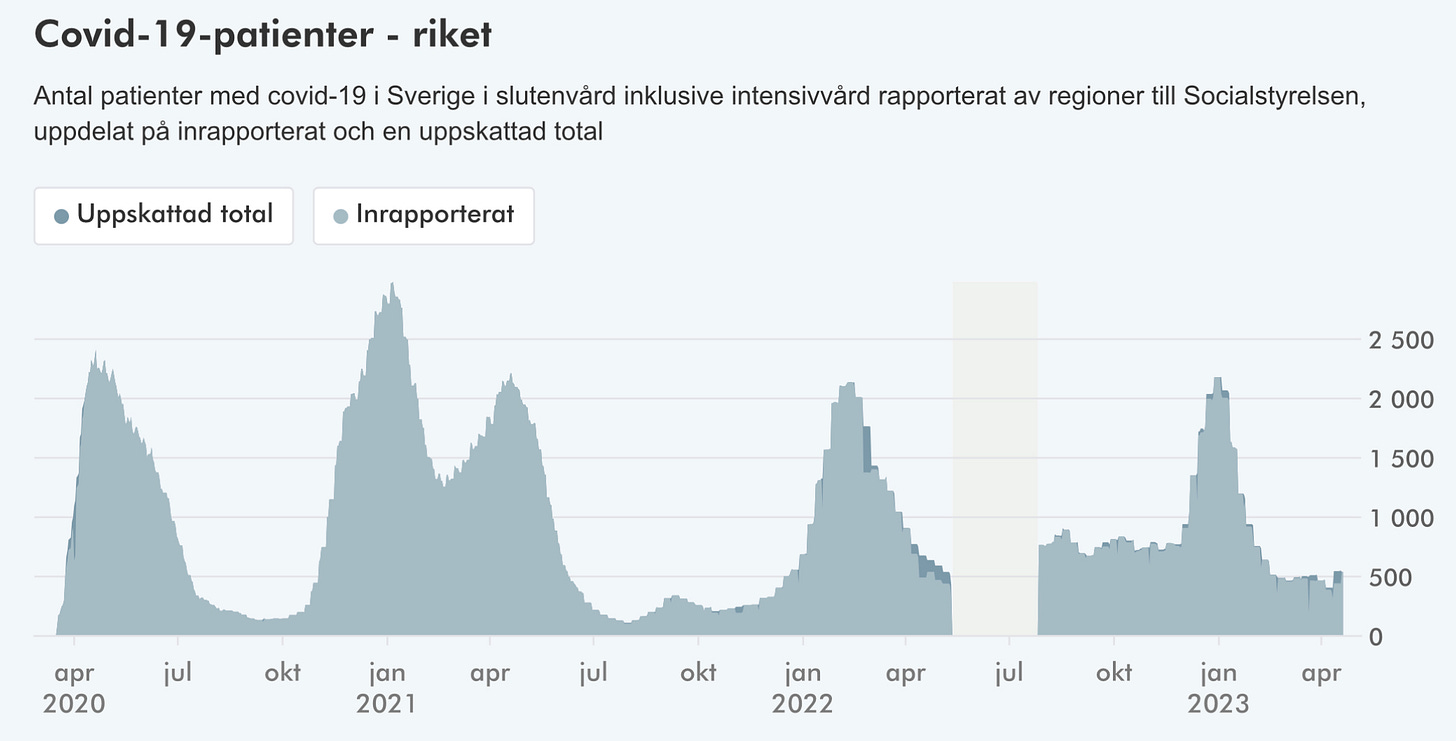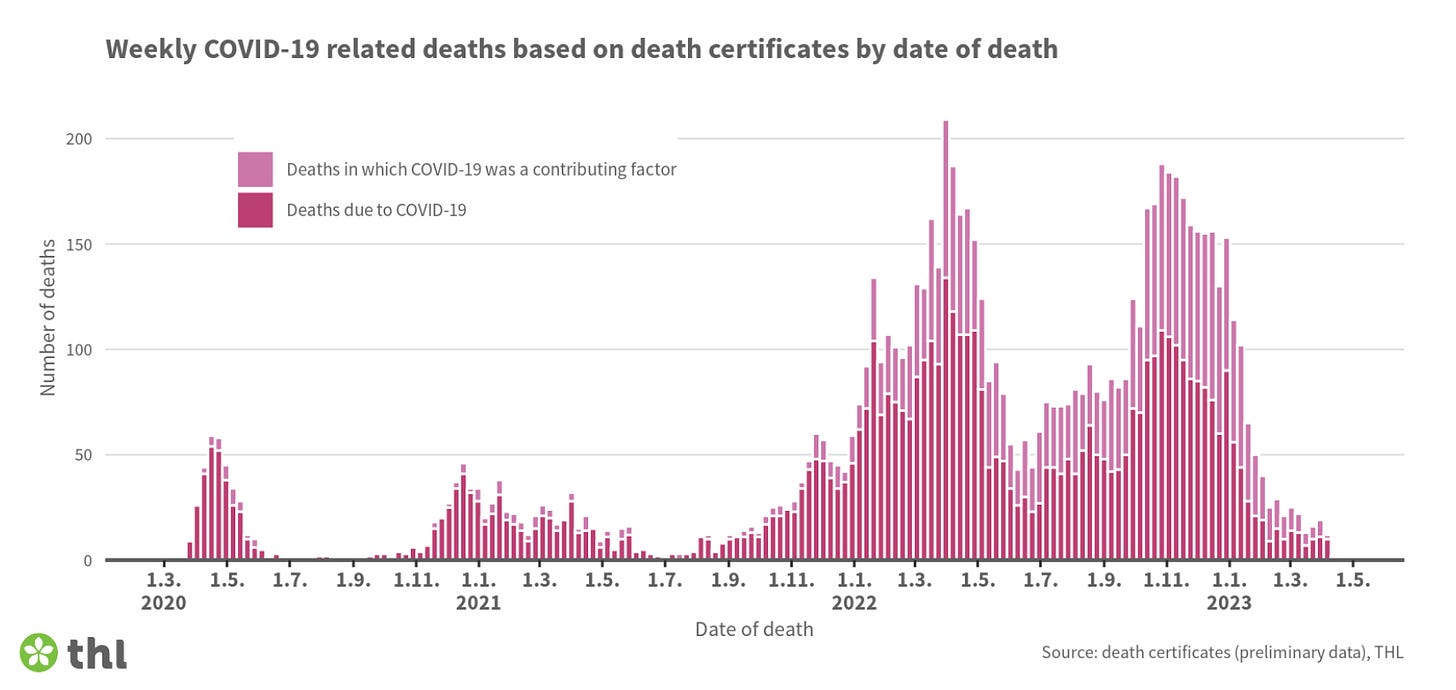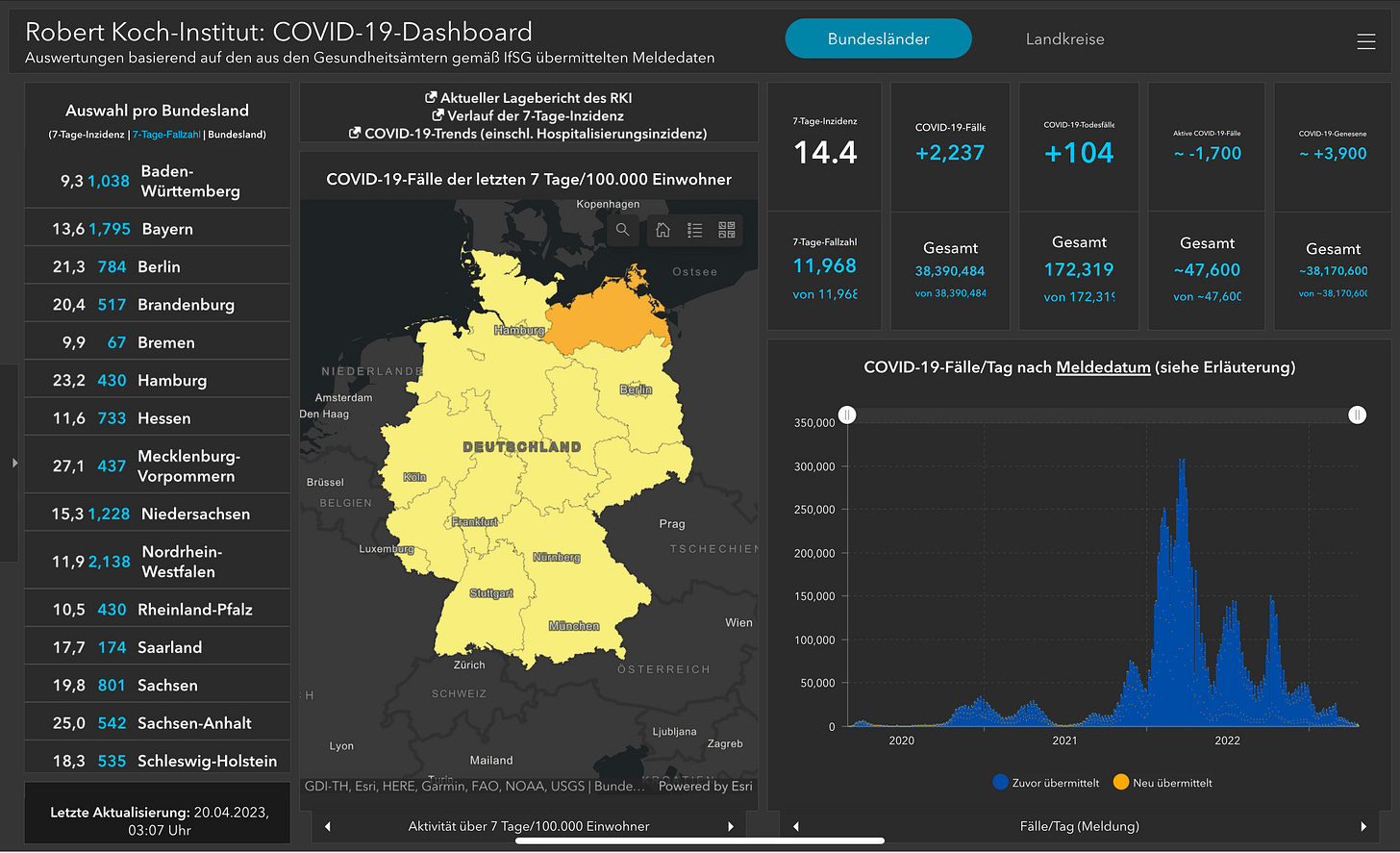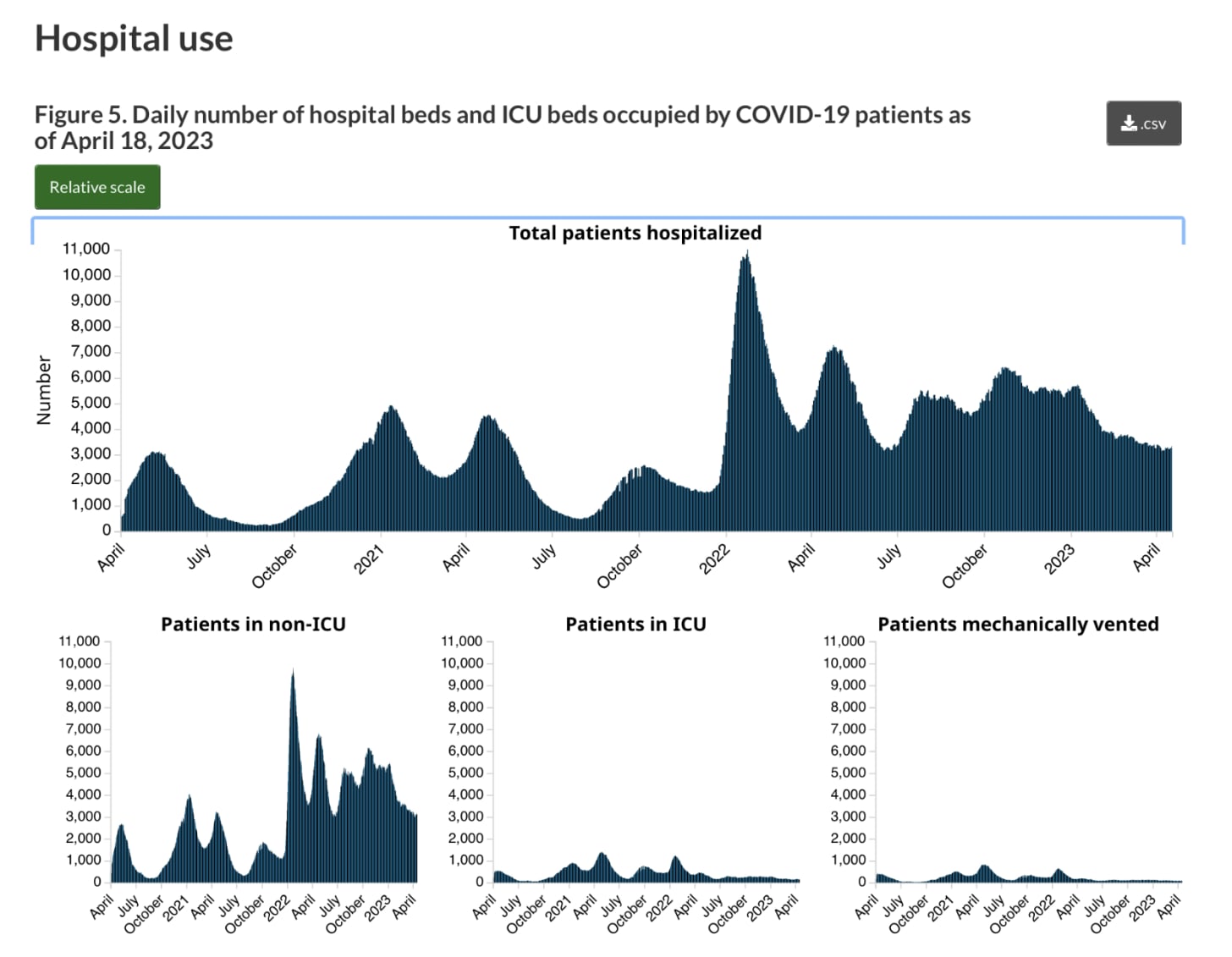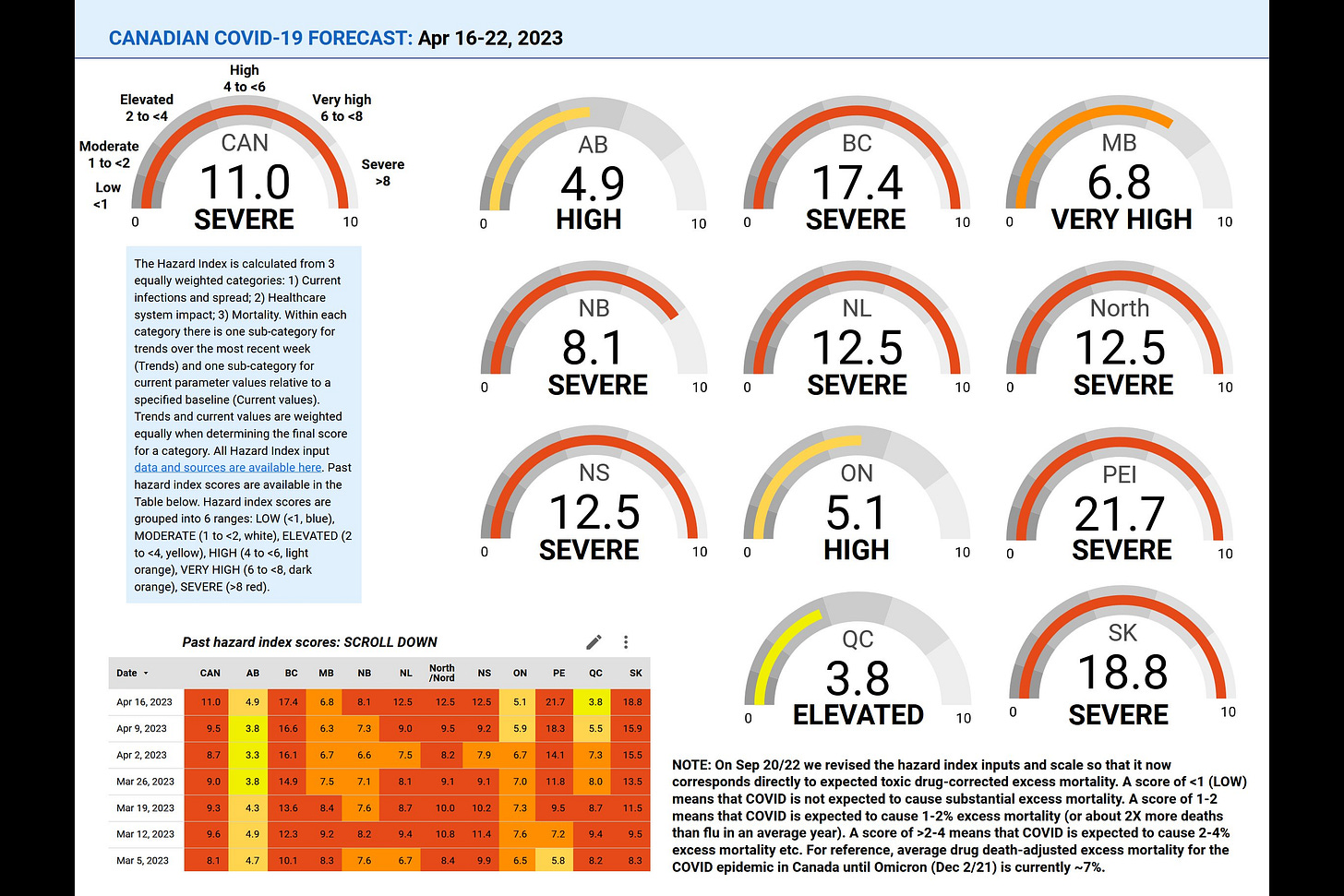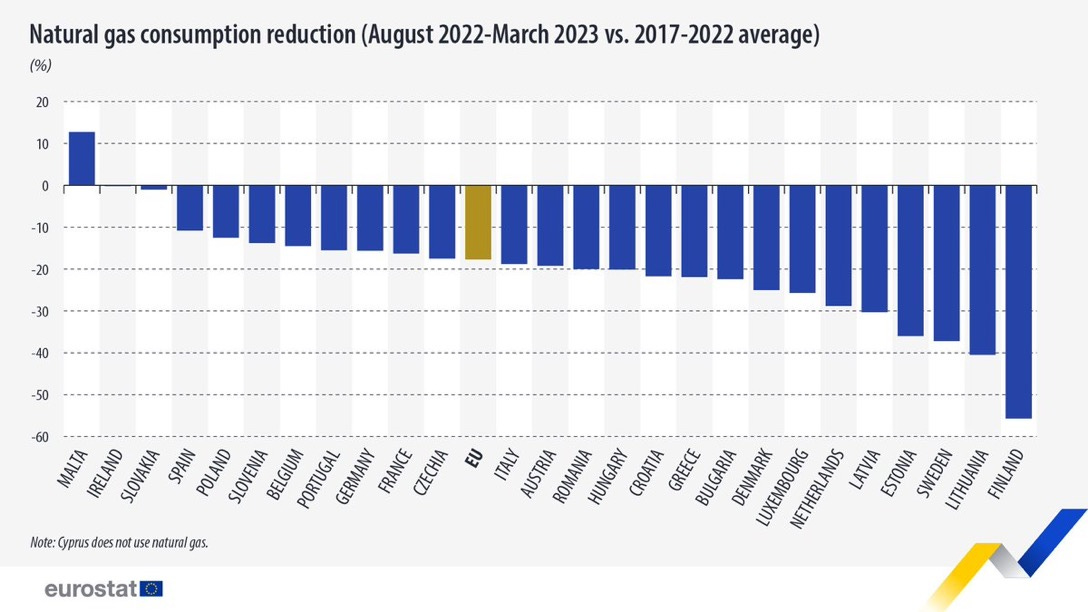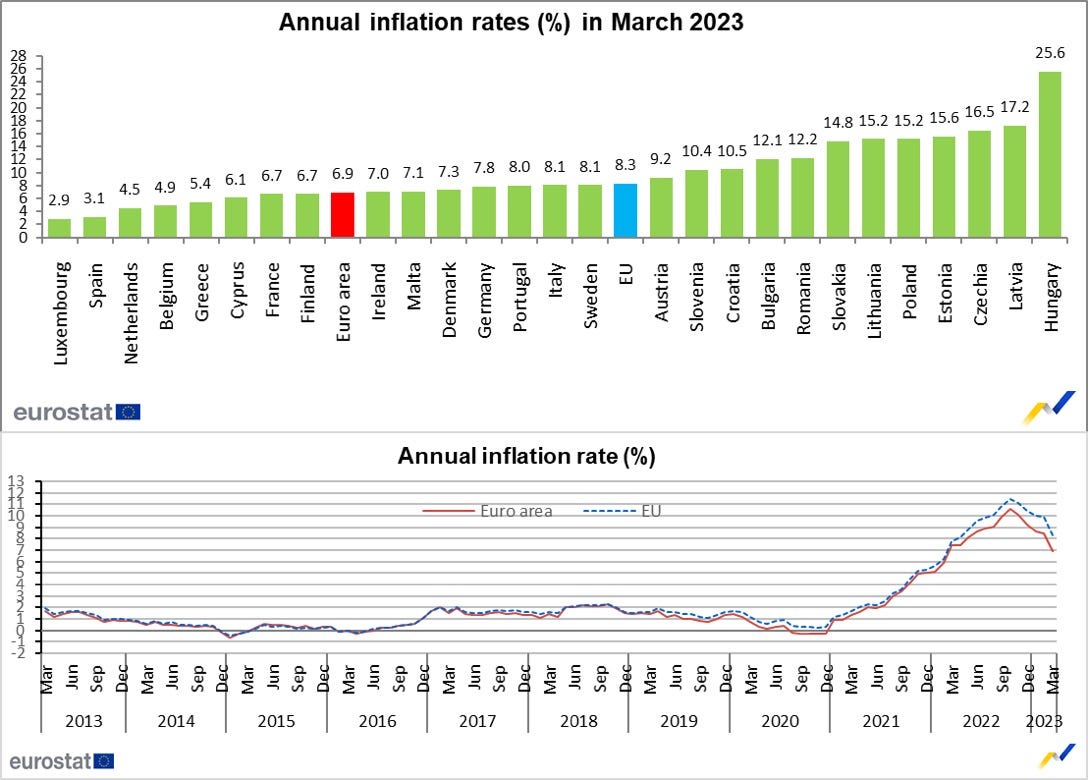The Evening Report - Apr 20
Cause for optimism in Europe. Local news a pandemic boon in Sweden.
🦠Pandemic🦠
🇪🇺🦠
For the first time since the month before the pandemic struck, the European Union recorded no excess mortality. According to the European statistics agency, EuroStat, the excess mortality rate in February of this year slipped two points below the pre-pandemic baseline average. To give some context in February of 2022, Europe recorded an excess death rate of +8%, which equals about 39,000 more lives lost than on average in any year prior to the COVID pandemic.
EuroStat says excess mortality remained high in the EU last year reaching a peak of +19% in December before seeing significant declines in January and February of this year.
At its height, excess mortality reached a mind-numbing +40% in the European Union in November 2020.
At the individual country level, two-thirds of EU nations recorded no excess deaths in February. Greece and Cyprus recorded the highest excess mortality (+12%) among the handful of countries that saw increased levels of excess mortality. The other were Portugal (+6%), Netherlands (+4%), Spain (+4%), Malta (+2%), and Italy, Ireland, and Austria each were +1%.
🇩🇰
COVID hospitalizations in Denmark (302) had plunged in the last week (-102) while the number of severely infected people in intensive care (6) dipped slightly (-2) and of those, the number on a ventilator (1) also inched downward (-1).
The number of infection-related admissions to a psychiatric facility (32) dropped (-5).
While hospitalizations fall seniors remain at the highest risk of suffering a severe infection requiring hospital care. 79% of all coronavirus-related hospitalizations in the last seven days have been seniors over 65.
-
The number of pandemic deaths remains high in Denmark with 53 more lives lost to the virus since Wednesday of last week.
-
It is getting almost impossible to track COVID variants in Denmark. With the public PCR testing program ending across the country at the end of last month the number of tests, and of those the number sequenced to identify variants, has become pitifully low.
The Danish COVID Genome Consortium registered just 16 sequenced positive tests across the country last week. For what it’s worth the XBB.1.5 variant was the most active strain identified among those positive cases.
-
The Staten Serum Institute is handing off tracking of the scaled-back COVID wastewater surveillance program to Testcenter Danmark. The SSI says this also means “significant changes” to how virus activity is analyzed and reported.
“This means that the results are not directly comparable with previous measurements, and that data must be collected for a period of time before it is possible to publish results as before.”
The institute says wastewater surveillance results won’t be reported until sometime next month.
🇸🇪
The Swedish Public Health Agency ended the use of its COVID dashboard as of March 30. This will make it incredibly difficult to reliably track pandemic impacts in the country.
-
COVID hospitalizations (539) have jumped in the last week (+96) while the number of severe cases in an ICU (11) eased slightly (-5).
-
The Swedish government is taking steps to improve treatment for people suffering from long-COVID. Among the efforts being made will be the development of more support material to improve the diagnosis, treatment, and rehabilitation, of people battling an array of coronavirus symptoms long after recovering from an initial infection.
Social Affairs and Public Health Minister Jakob Forssmed spoke to Radio Sweden to say that one of the shortcomings has been the lack of a uniform approach across the country.
“That has caused patients to be frustrated by lack of, what they feel is, proper care.”
Forssmed adds that while just a few years ago we knew little about long-COVID and how to treat it, our collective knowledge has since grown.
“We need to gather the best possible knowledge and research when it comes to the treatment and diagnostics of post-COVID. This sickness needs to be addressed in a better way by the healthcare system and we will gather this knowledge and we will make sure that it will be spread both in primary and specialist care.”
But critics say words and actions appear to be at odds with some regions closing long-COVID clinics.
-
Reliable local news was a game changer in Sweden during the pandemic. That is the conclusion of a new research paper from the Stockholm School of Economics and Jönköping University. After analyzing media coverage, including some 200,000 newspaper articles, researchers found that the more COVID was mentioned the more people took preventive measures like wearing a mask or ensuring social distancing.
Sweden was one of the few countries in the world that did not impose mandatory lockdowns during the pandemic instead relying on people to voluntarily comply with a number of recommendations.
Assistant Professor Maiting Zhuang says the more pandemic coverage there was in local news media the more people chose to work from home and limit visits to shopping and recreational areas. And the more locally relevant the coverage was, the greater the impact.
“We found little evidence of media fatigue or a preference of opinion pieces relative to factual reporting when it comes to COVID in Sweden.”
Researchers found that along with more visible coverage, articles containing simple but explicit health advice about coronavirus had a greater impact on people’s behaviors.
While misinformation and accusations of media bias have been hogging the limelight Swedish researchers concluded that media coverage of the pandemic was invaluable.
“Local news remains an important source of local information, and that personally relevant information is more important for behavioral change. A lack of trusted local media could adversely affect compliance with government recommendations during a crisis, as well as a range of other campaigns, such as those encouraging the take-up of vaccines or adoption of more environmentally friendly behaviors.”
You can find the research paper in full HERE.
🇫🇮
Finland registered 1,340 new infections in the last week and added 187 more pandemic deaths since we last provided an update on the country a few weeks ago.
🇳🇴
The Norwegian Institute for Public Health provides a pandemic update every two weeks. The next one is due in a few days.
🇩🇪
Germany recorded 2,237 new infections and suffered another 104 lives lost to the virus in its Thursday daily report. Total to date deaths in the country have reached 171,992 lives lost, the ninth highest death toll of any nation on earth.
It added 639 more hospitalizations while ICU numbers (662) dipped (-30). As a percentage of all intensive care needs in the country COVID patients are using 3.3%.
🇬🇧
Infection-related hospitalizations in the United Kingdom have declined by 8% week to week according to the COVID Actuaries Response Group. But while admissions fell across the UK they increased in London and the East.
The COVID reinfection rate, or R0, is up slightly to 0.96. Anything over 1 is considered to be a growing epidemic.
🇨🇦
The Public Health Agency of Canada has reported another 5,805 infections (wildly underreported) in its latest weekly update along with 57 more fatalities.
The seven-day positivity percentage is 10.4%.
-
In the seven-days ending April 18, the total number of beds used by COVID patients across Canada increased by 65 to 3,333 beds in use. Of those, general admissions rose from 3,115 to 3,193. The number of people being treated in an ICU drooped to 140, a decline of 13. But severe cases requiring a ventilator nudged upward by four to 77.
-
University of Toronto Associate Professor, and blood-borne infectious disease expert, Tara Moriarty has been running an exhaustive cross-Canada pandemic tracker. You can find her latest report HERE.
This is her latest warning dashboard.
⚡️Energy Crisis⚡️
🇪🇺
Natural gas consumption dropped like a rock across the European Union as Russia weaponized its energy exports triggering the energy crisis last year. New numbers from the EU statistics agency, EuroStat, show that between August of last year and March of this year, gas consumption across the EU fell by 17.7%.
Nations in the Baltics and Nordics led all European states in reducing gas use.
-
Inflation across the EuroZone eased last month. According to EuroStat inflation dropped to 6.9%, down from 8.5% the month previous.
Among the different EU states, Hungary (25.6%), Latvia (17.2%), and the Czech Republic (16.5%) recorded the highest inflation rates last month.
Food, alcohol, and tobacco products continued to see prices rise in March (+3.12%) as did services (+2.10%), and energy (+0.05%).
🇩🇰
The Danish government is hoping to kickstart its green hydrogen industry as the energy transition continues in full swing. This week the Power to X tender opened and it is expected to generate 1.25 billion Danish kroner (about $247 million Cdn) for hydrogen production.
Climate, Energy and Supply Minister Lars Aagaard:
“We are now investing massively in the technology that converts green electricity into hydrogen for industry and into fuels that can be put on the wings of airplanes and poured into the tank of a ship. It is a big step on the way towards our climate goals and the goal of independence from Russian gas.”
Green hydrogen allows for the storage of clean electricity that can be reconverted on demand.
-
After doing record business during the pandemic a Danish grocery chain is being sideswiped by rising inflation spurred in part by the energy crisis. The Coop group, operates the grocery stores Kvickly, SuperBrugsen, Dagli´Brugsen, Fakta, 365discount, Irma, Coop.dk Shopping, and Coop.dk MAD, has tabled a 628 million Danish kroner deficit (about $124 million Cdn). This marks its worst fiscal year ever.
Several factors are to blame. Chief among them is rising inflation that drove up the price of buying goods to stock the shelves while also forcing people to save money by purchasing less.
The company is going to lay off a chunk of its workforce. It currently employs just over 10,000 people. It is also in the process of consolidating its grocery chains down to three brands.
🇺🇦/ 🇷🇺 War
🇩🇰 🇸🇪 🇳🇴 🇫🇮/ 🇷🇺
A Nordic documentary is making global headlines about potential espionage planning by Russia. The documentary was produced by the public broadcasters in Denmark, Sweden, Norway, and Finland. The documentary is alleging a Russian effort to spy on offshore energy platforms and undersea cables in the Baltic and North Seas. The investigation identified “suspicious” journeys by some 50 Russian vessels over the past decade, These include vessels posing as cargo boats, fishing boats, and yachts.
In one instance investigators identified a specific Russian vessel that was supposed to be carrying out research but was sending radio messages to a Russian naval base. When approached by Danish journalists they were warned off by armed masked men onboard the ‘research’ vessel.
🇩🇰 🇳🇱/ 🇺🇦
More Leopard tanks are headed to Ukraine. Denmark and the Netherlands have announced they will jointly donate 14 Leopard 2A4 tanks. However, the tanks aren’t going to arrive anytime soon as they will be purchased from an unidentified third party and then have to be refurbished.
Denmark’s Acting Defense Minister Troels Lund Poulsen says the tanks should arrive in Ukraine in the first quarter of next year.
“It is absolutely crucial for the hope of a peaceful and secure Europe that we do not let the Ukrainians fight the battle alone.”
Denmark and the Netherlands are already working with Germany to refurbish up to 100 Leopard 1A5 tanks for Ukraine. The first batch of those fixed-up tanks will be headed to Ukraine soon.
🇸🇪
This week Sweden is holding the largest military exercise to take place in the country in over 30 years. The exercise called ‘Aurora 23’ involves 26,000 troops from Sweden and 14 outer countries. It will involve responding to a simulated military attack from “an unnamed aggressor” as well as simulated cyber-attacks and sabotage aimed at critical infrastructure.
🇩🇰/ 🇷🇺
Four days before explosions tore apart the Nord Stream pipelines last September, a Danish patrol boat snapped 112 pictures of Russian vessels in the area where the blasts took place. The news about the photos came to light in an access to-information request by the Danish national broadcaster, DR.
-
The governing coalition in Denmark has tabled a bill that will if passed, terminate a tax agreement with Russia ensuring people filing taxes in both countries don’t get dinged twice. The Danish Taxation Ministry is trying to clear the decks to both remove roadblocks in being able to levy financial measures against Russia and also to fall in line with the European Union, which put Russia on a tax haven black list.
Tax Minister Jeppe Bruus:
“It goes against general considerations that Denmark normally pursues when entering into double taxation agreements, that Denmark has an agreement with a country on the EU's blacklist of tax havens. Termination of the agreement with Russia will ensure that the Danish defensive measures can be implemented against all countries that are on the EU's blacklist.”
🇩🇪/ 🇷🇺
Spare pipe in Germany originally intended for use in the Nord Stream 2 pipeline will instead help build a liquified natural gas terminal. German newspaper Ostsee-Zeitung is reporting that the German government has bought several thousand of these spare pipes but is keeping very quiet about any of the details of the purchase or other contract details. According to German authorities spare pipes with a total length of 60 kilometers is stored in the city of Sassnitz.
Since Russia weaponized its oil exports and turned off the flow of oil through the Nord Stream pipelines last year, Germany has turned to LNG for energy security.
🇫🇮
The Finnish army is getting some upgraded skis thanks to joining NATO. The alliance has ordered 8,200 pairs of skis from KSF Sport Oy, a Finnish company headed by a former world ski champion and Olympic medalist. According to the newspaper Karialainen, the order is worth three million euros. The new ski equipment is military grade meeting the requirements set by NATO.
The new ski equipment will be delivered to the Finnish Army's Jaeger Brigade and Kainuu Brigade next winter.
🇩🇪/ 🇺🇦
Germany has delivered the Patriot missile air defense system to Ukraine as promised.
Ukrainian Defense Minister Oleksiy Reznikov:
“Today, our beautiful Ukrainian sky becomes more secure because Patriot air defense systems have arrived in Ukraine.”
The Patriot system can defend against enemy aircraft, ballistic, and cruise missiles and is considered one of the most advanced air defense systems in the world.
German media outlet dpa is reporting that Ukrainian troops received training on using the Patriot battery in an unnamed NATO country.
The Netherlands has also promised to send a Patriot missile system to Ukraine in cooperation with the United States.
🇷🇺/ 🇦🇹
Russian diplomats and representatives are having a tough time getting to Vienna, Austria for the United Nations Ad Hoc Committee. Austria has ramped up political pressure by refusing to grant visas to the majority of the Russian delegation.
NATO/ 🇺🇦
For the first time since Russia invaded Ukraine, the Secretary General of NATO has paid a visit to Kyiv this week. Jens Stoltenberg paid his respects to fallen Ukrainian soldiers at a memorial in the city.




